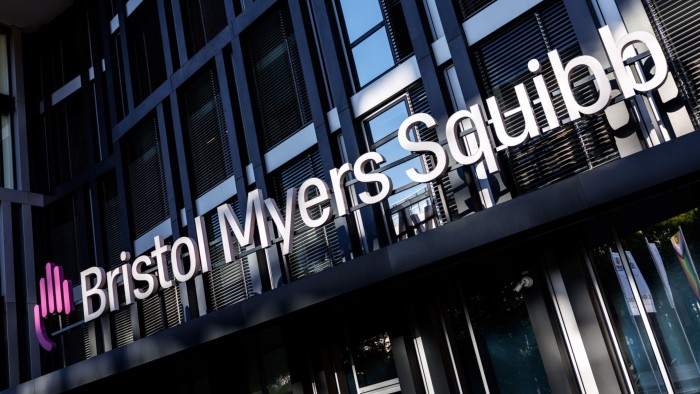Unlock the White House Watch newsletter for free
Your guide to what Trump’s second term means for Washington, business and the world
US pharmaceutical company Bristol Myers Squibb will sell its new schizophrenia treatment in the UK for $22,500 a year, the same price as its American version, at a time when governments on both sides of the Atlantic are seeking to lower drug costs.
The launch of Cobenfy is the first time BMS has sold a drug at the same price in the UK and the US, and is a rare corporate pricing announcement ahead of a UK regulatory filing. BMS said it is preparing to submit the drug for UK approval in the coming weeks and expects approval next year.
It comes as global pharmaceutical companies are trying to fight off Trump’s demands that they lower US drug prices.
BMS was one of 17 companies that received a letter from the White House in July demanding “binding commitments” to match in the US the lowest drug prices offered in other developed nations. Companies have until September 29 to respond to Trump’s demands.
At the same time drugmakers are trying to force the UK government back to the negotiating table in the hope of cutting taxes on medicine sales.
BMS’s Cobenfy announcement aligns the company with Trump’s push for drugmakers to sell their US products at the lowest price offered in other developed nations, as proposed by the president in a May executive order.
In an interview with the Financial Times, Adam Lenkowsky, chief commercialisation officer at BMS, said the company might halt Cobenfy’s UK launch if it is not included in guidelines issued by the National Institute for Health and Care Excellence (Nice).
Nice calculates whether a drug is deemed good value for money and recommends if it should be prescribed by NHS doctors.
“If we need to, we are prepared to make the difficult decision to walk away if NICE cannot recognise the value of our medicine,” Lenkowsky said.
“We’re asking the UK to step up in recognising the value of truly innovative therapies,” he said, adding “we do agree with the Trump administration that in fact other countries need to pay their fair share for innovation”.
Schizophrenia is a mental health disorder affecting about 1 in 100 people in the UK, BMS said. Cobenfy’s price would apply to NHS patients as well as to those with private insurance.
In August, US pharmaceutical company Eli Lilly increased the UK price for weight-loss drug Mounjaro by up to 170 per cent, but this increase did not apply to the NHS.
The UK government and pharmaceutical sector have sparred for months over a clawback tax for drug revenues. The tax rate is calculated each year based on how much NHS spending on drugs outpaces an agreed growth rate, and is designed to limit the cost of medicines for Britain’s state-run health system.
The tax rate rose to almost 23 per cent this year, a rate Lenkowsky said “is untenable”.
Other drug companies have pressured the UK on pricing. Earlier this month, Merck — known as MSD in Europe — scrapped a £1bn research centre in London, accusing the UK of not being internationally competitive.
AstraZeneca has said it is pausing a £200mn UK investment in Cambridge, while this summer, the company said it will invest $50bn in the US.
With one week to go before Trump’s drug pricing deadline for BMS and 16 others, the pharmaceutical industry’s lobbyists are trying to strike drug pricing deals with the White House.
It remains unclear whether the drug companies’ UK pricing and US manufacturing announcements will be enough to convince Trump to back down from his “most favoured nation” (MFN) policy that would peg US drug prices to those in other developed countries.
“We are very concerned about policies like MFN, which threaten innovation and patient access,” Lenkowsky said.
In 2020, Trump proposed similar MFN practices, but pharmaceutical companies challenged the White House in court and won injunctions, halting the president’s efforts.
For Trump, the drug pricing fight remains a priority. In an interview with Fox News in the UK last week, Trump said: “We have been paying for the healthcare of every nation in the world so stupidly.”
“Now the drug companies agree that I am right, and countries — if they don’t agree — I’ll use tariffs to get them to agree,” he said.

